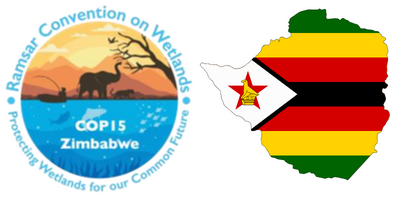Wetland preservation needs to be stressed in action ahead of the upcoming Conference of the Contracting Parties to the Ramsar Convention on Wetlands(COP15), Environmental Management Agency spokesperson Ms Amkela Sidange said yesterday.
COP15 is scheduled for July 23 to 31 in Victoria Falls. A planning meeting for the communications sub-committee of COP15 was held on Wednesday, with Ms Sidange highlighting the importance of increasing the area of wetlands in Zimbabwe under sustainable management, aligning this with the National Development Strategy 1.
“As a country, the significance of what is going to take place is that we will be the lead nation in the systemic management of wetlands, considering that we have already implemented many measures aimed at sustainable management of these ecosystems,” she said.
Ms Sidange underscored the need of showcasing best practices in waste management during COP15, viewing it as an opportunity for Zimbabwe to demonstrate its progress and expertise in wetland management.
The obligation to conserve wetlands is mandated by the Environmental Management Act.
Ms Sidange reminded attendees that without express written authorisation from EMA, no wetland should be reclaimed, drained or disturbed. Wetlandsare valued as they help filter and purify water, provide habitats for diverse plant and animal species.
Preserving wetlands is seen as vital given that it ensures communities have access to clean water.
Ms Sidange said once wetlands are destroyed, people risk losing the benefits and will face serious environmental consequences. She urged the community to take responsibility for protecting wetlands, stressing that conservation is not solely the EMA’s duty but a collective responsibility.
Most wetlands are unsuitable for development so are often available to be protected and maintained.
Ramsar Convention National Focal Person Mr Phanuel Mangisi said: “We have sites that are protected and recognised as sites of international importance.”
As Zimbabwe prepares to host the African COP, the push for wetland preservation remains critical for both environmental health and community well-being.

